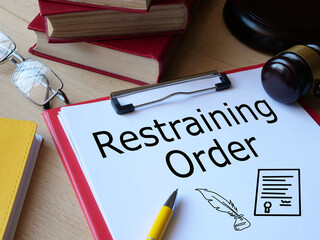A troubling case expanded the reach of “official misconduct” to a volunteer firefighter in State v. Quezada, 402 N.J. Super. 277 (App. Div. 2008). This defendant had just begun volunteering as a firefighter with the Prospect Park Volunteer Fire Department in 2003. He started the fire academy in June and graduated in October. Around that time. The Chief noticed that the fire department was responding to an increased number of false alarms. After another false alarm in February, the Chief discovered that the false calls were coming into the department dispatch number, and not from 911. Because the calls had not come through the 911 system, the police were not aware of the calls and the computer system did not record the caller’s phone numbers. The fire dispatch number, however, was recorded. When the Chief listened to the recorded calls, he recognized the voice of a new firefighter, the defendant. Detectives interviewed the defendant and he confessed to making the calls. He explained he would call the dispatch number because 911 “asked too many questions.” The defendant was charged with making false public alarms, official misconduct, and pattern of official misconduct.
New Jersey has one of the toughest corruption laws for anyone involved with official misconduct, as defined in New Jersey Statute 2C:30-32. This very broad law covers the simple improper action of a public official. In order for the prosecution to convict the defendant of Official Misconduct, they needed to prove the following elements:
(1) The defendant was a public servant;
(2) He committed an act relating to his office knowing that it was unauthorized; and
(3) His purpose in so acting was to benefit himself or to injure someone else.
The first element the prosecution needed to prove was that the defendant was “public servant.” New Jersey law, N.J.S.A. 2C:27‑1, defines this so broadly it covers practically every government employee, every legislators, every judges, every consultant, every advisor, and anyone else performing a governmental function. The Appellate Court wrote that the unpaid volunteer firefighter because firefighting is a governmental function.
The next element is that the defendant did some improper action or failed to do some required action. This action must have been part of the official duties. While not every improper action is official misconduct, the prosecution needed to prove he knew the action was unauthorized and unlawful. Under this law, the defendant could be convicted of official misconduct even if a jury found he committed no other crime. In this case, the defendant was convicted of causing the false public alarms.
It is the final element of official misconduct where this case stretched the law. The Prosecution needed to prove the defendant’s purpose was to benefit himself. Benefit was defined under N.J.S.A. 2C:27‑1 as “gain or advantage, or anything regarded by the beneficiary as gain or advantage, including a pecuniary benefit or a benefit to any other person or entity in whose welfare he is interested.” The defendant did not gain a monetary advantage for calling in the false alarms. The Appellate Court decided that a benefit could be the joy or gratification of participating in the response or even by giving the unit work to keep it in existence. As the Court explained that “the joy of responding to fires as a volunteer firefighter, if not the desire to give the volunteer department enough work to justify its existence or gain public recognition, is a ‘benefit’.”
Worse than just making it a benefit for this charge, the fact that this benefit had not extrinsic value affects the sentence. In New Jersey, the crime of Official Misconduct is a crime of the second-degree with a presumption of state prison. If the value of the benefit was less than $200, the official misconduct would be a crime of the third-degree. Because the benefit had no monetary value, the charge was the second-degree crime with a presumption of state prison.
As a result, the “Official Misconduct” applied to a Volunteer Firefighter Calling in False Alarms when his only benefit was “the joy of responding to fires” and he received a sentence of 8 years in prison.
If you or a loved one arrested for Official Misconduct or another crime, you will need legal representation.
As a former prosecutor, New Jersey criminal defense attorney Douglas Herring handles criminal matters in the Mercer, Somerset, Middlesex, and throughout New Jersey. With over 15 years of experience as both a federal and state prosecutor, Mr. Herring is in a unique position to defend individuals arrested and charged with crimes.
If you have been arrested or charged with a crime and or you need to hire a New Jersey pre-filing defense attorney or you are under investigation for a crime, please contact New Jersey criminal defense attorney Douglas Herring for 24/7 assistance by phone at (609) 256-4098 or toll free at (844) NJAccused or (844) 652-2287 or online.

